Unless you’ve been living under a Wi-Fi-free rock for the past month, you’ll probably be aware that CBC have released their first beer in a can. The pale ale hit fridge shelves in late March and is gradually making its way around the country. But not just on the back of delivery trucks – the CBC team took quite the journey to get the cans to SA (brewer Wolfgang travelled to Sweden to brew the beer, where it is canned and shipped to SA) and since launching, they’ve been encouraging their fans to do the same. The idea is to take your CBC on the road and share photos of the beer’s trip over social media and/or on the new Love the Journey app. I, of course, live to make your beer-related life easier, so here’s a list of four perfect places to crack open a can of CBC Pale Ale. Grab a four pack, throw a backpack into your car, bring a beer buddy along and join the journey.

This guy wants a sip of your beer
1. A post-game drive breakfast in the Kgalagadi
I’m not ashamed to say that I occasionally enjoy the odd beer for breakfast. And anyway when you’re talking about a post-game drive breakfast, it’s really practically lunch. CBC’s Pale Ale has a faint whiff of perfectly done toast about it, so it makes an ideal breakfast beer. Park up next to a pride of lions, get your brekkie sandwiches out and open a can. A crisp session beer like this is just what you need to wash away some of the Kalahari dust and to douse the often scorching temperatures up on the Botswana border.
2. Sitting under the Wolfberg Arch

Maybe one day I’ll exert myself and make it to the Arch. But this easy-to-access Cederberg landscape is also a pretty place to drink beer…
Anyone who walks for several hours in the Cederberg heat needs a beer, and CBC’s Pale Ale is a particularly thirst-quenching and downable brew. Whichever way you attack it, the Wolfberg Arch is about an eight-hour round-trip hike (disclaimer: I am far too lazy to put this to the test so am putting my faith in the internet). Luckily, the cans are light-weight, so taking a celebratory brew to sip on arrival at the spectacular sandstone formation won’t weigh down your daypack. If anyone has ever asked you what the best beer you’ve ever tasted was, the one drunk in the midday sun after a challenging hike will probably be in the running.
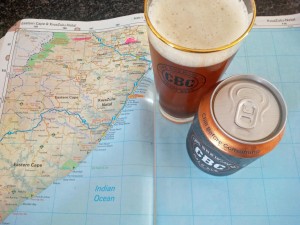
A bit of beery travel planning
3. On a KZN beach
The South African coastline is abundant in gorgeous beaches, but beer goes best with the warmest of weathers and indeed, the warmest of waters. You don’t usually fancy a crisp pale ale after a plunge into the icy Atlantic, but over in KZN, the climate is built for beer. Theoretically of course, you’re not supposed to drink on a public beach, but I figure if you just have the one and it’s from a can rather than a bottle, you’re not going to get rowdy or endanger the toes of fellow beach-goers with shards of broken bottle. Just make sure you take your can away and dispose of it properly (ideally recycling it – cans were made to be recycled).
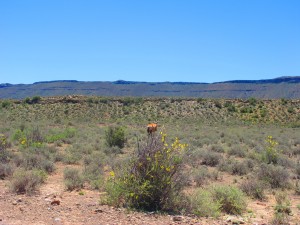
Cold beer and Karoo dust – a great pairing
4. On a Beaufort West farm
CBC’s Pale Ale is the colour of a Karoo sunset, so it seems only right that you sip a can of it alongside a colour palette that can live up. Seek out a copper koppie or some rolling russet hills and enjoy the last can in your four-pack as the sun sets over the semi-desert. CBC’s Pale Ale is very approachable, even for the lager-drinker, so it’s a great beer to use when attempting to convert people in far-flung Karoo towns to craft. It could of course be anywhere in the Karoo, but let’s face it, what with the recent re-escape (and subsequent re-capture) of Sylvester the lion, the citizens of Beaufort West could probably do with a beer or two to calm the nerves.
Want to read more on the benefits of putting beer in cans over bottles? Check this post out.
Disclosure: I am currently working with CBC on their new #LoveTheCraft campaign. I am very selective about the brands I partner with. They must be relevant to my audience and utterly reliable when it comes to consistently putting out a top-notch product. CBC fits this bill without any doubt.



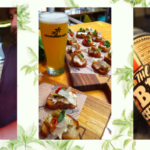



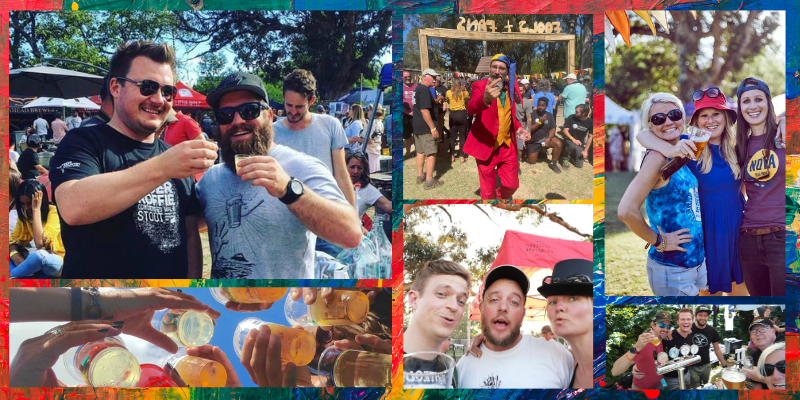
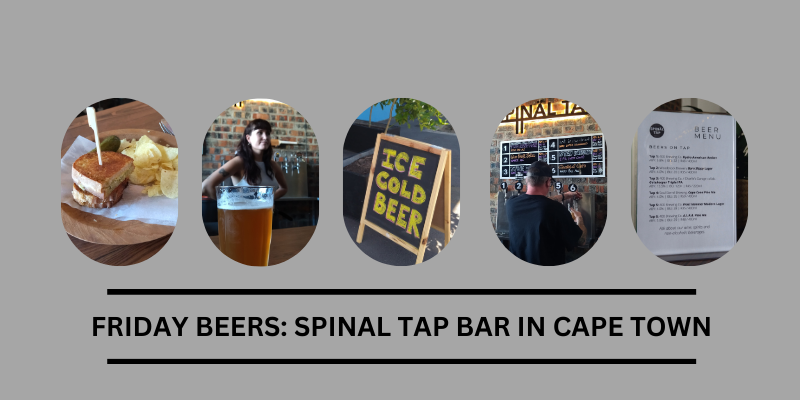
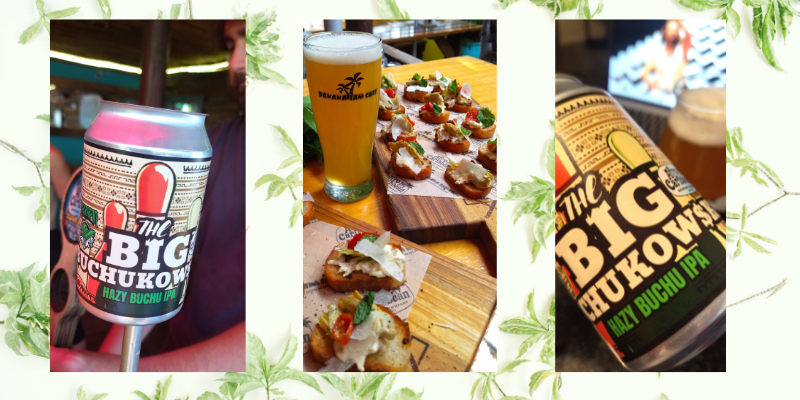
Lucy is selling out to big corp! :p Good luck with the campaign.
Have you considered changing the hastag to #LovingItInTheCan ? :p (Hat tip to BN)
Haha. A girl has to earn a living right? But I wouldn’t just partner with anyone y’know…They’ve got to serve good beer and, erm. That’s it.
Hi Lucy
I was wondering… can you really still call CBC “craft” in terms of the South African context? And if the beer is brewed in Sweden and shipped to SA is it even still local? Just wondering…
The definition of craft has always been a tricky one. Of course, CBC has a large and largely automated system, but I don’t think that should count them out. I mean, look at some of the American craft breweries – huge, professional setups. I think we (humans I mean) have a tendency to punish success. Take a look at Wild Clover for example – they now have a sizable, shiny brewery that has been secured with outside funding from investors. Does that make them not craft any more? No, it makes them successful, I think. Ampie started on a 30-litre homebrew setup and deserves to do well.
For me, craft isn’t about size but has always been more about ethics, variety and passion. Coming back to CBC, I think you’d be hard-pushed to find anyone in South Africa with more knowledge or passion that Wolfgang. Sure he doesn’t brew on a 150-litre self-built system any more, but then if you’ve been in an industry for 30-plus years, you want to move onward and upward!
Is the beer local? No, probably not. The recipe was developed here in South Africa and at the moment you can taste the pale ale brewed in Paarl at the brewery (it’s excellent). The reason they’ve decided to brew over in Sweden is because, however huge and successful they seem to the rest of us, CBC can’t afford the kind of canning line they would be happy using and their sister/parent brewery in Sweden has one.
Personally, I would love it if everyone stopped talking about craft beer and focused instead on more important terms – I’m a fan of good beer and will continue to fight the fight for that!!
I am interested to know of four places in the southern suburbs you can BUY these cans?
Susan has a valid point. I think we should move on from “craft” to “all malt”….because that definition is an important distinction
Haha – I think it’s exclusive to Checkers at the moment but soon to be available more widely. Greg did have some at the Jam – check to see if it’s still available…
All-malt seems like a good distinction – but then what about wheat beers and Red Sky’s gluten-free…?
You use wheat malt in wheat beers don’t you? In adjunct brewing the adjuncts like rice and maize are not malted.
A gluten free beer can be a gluten free beer …. that’s distinction enough.
And stouts using unmalted roasted barley?
This is serious business. You have to be strict. No space for mucking around. People have abused the craft definition for too long…
Its really about all malt verse adjunct – the big brewers grain bills are 50%+ adjunct. So i think you could say to be all malt the grain bill should be at least something like 85% MALT. Allows people to use flaked oats, flaked barley, roasted barley etc …. and still meet the definition.
I can’t see anyone wanting a grain bill of more than 15% roasted barley
You make solid points. This would still allow great, yet mass-produced, beers like Pilsner Urquell to be admitted. I’m on board.
My Witbier uses 50% unmalted wheat (as they should), while all windhoek beers are all malt I believe. Many good craft beers use additional ingredients. Not sure All Malt covers it really.
I stand corrected. But I don’t drink or make witbier and I would still like to know if a beer is all malt or not – and by “all-malt” I am referring to the grain bill. I would say a beer could still be all malt even after adding orange peels, coriander seeds and a bit of sugar/honey
However, see Lucy’s next article – I don’t think we should be looking for an all or nothing definition that ‘covers it’.
Perhaps the distinction should be between ‘craft’ and ‘indie’ (or “independent’) beer… this article is quite relevant to the discussion I think: http://www.sandiegoreader.com/news/2016/jan/29/beer-news-craft-dead-now-we-drink-indie-beer/# and addresses exactly what you were referring to in terms of American “craft”.
I certainly don’t want to punish success, but I do think that it is easier to be successful when you have enough money to throw at something. CBC’s slogan on their label is “Independent from day one” (or something like that), but that isn’t actually true at all. They’ve always been partly owned by the large Swedish brewery. And because they are so big they are able to put a lot of price pressure on the little guys, pushing them out of the market. I don’t have any problem with a brewery like Wild Clover building up their business with the help of private investors… to me that is still “Indie” beer, but when you are owned by a large commercial brewery with all the resources available to push their way to the top, then I don’t think you should be put in the same category.